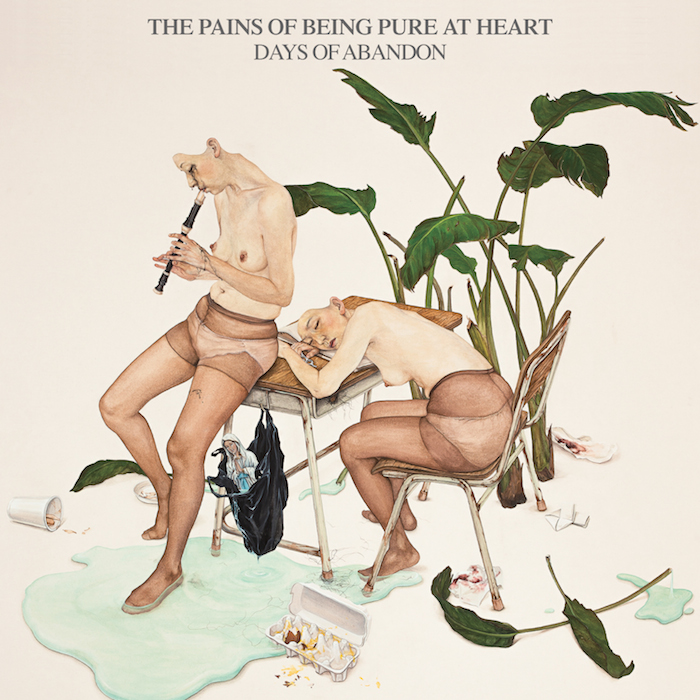There has been a gradual move for New York City’s The Pains Of Being Pure At Heart; from a rough-around-the-edges sound on their debut to something resembling a sunny 80s pop sheen on their newest long player Days Of Abandon. The change is subtle, but there. On their debut album there was a slight darkness to the fuzzy pop hooks. You got the feeling My Bloody Valentine and Teenage Fanclub were spun quite a bit in the band’s formative years. On their sophomore effort We Belong the band traded 4AD grit for Smashing Pumpkins grandiosity. Big guitar crunch took the place of shoegaze and post-punk flair. With Days Of Abandon the Pains’ have embraced 80s FM radio and junior high dance soundtracks. It works for them, but I can’t help pine for some of that darkness that’s been lit up by neon lights.
“Art Smock” opens the album with a whispered vocal and musical refrain. At times this track sounds like Ezra Koenig stopped in to help out in the vocal department. “Beautiful You” could have been playing over the closing credits of any John Hughes film. Any of ’em, just take your pick. I’m picking ‘Some Kind of Wonderful’. He didn’t direct it, but he wrote it. “Coral and Gold” is an atmospheric little gem. You get the feeling there’s some pain behind those words, “I’ve been waiting for you, just waiting for you, When you gonna turn? I’ve been tracking your spine, mixing your blood with mine, When you gonna turn?” The song builds into a beautiful crescendo before lilting at the end. “Eurydice” is that Bruce Springsteen and Pat Benatar collaboration we never got. At one point towards the end of the song I swear that Pat Benatar is singing the song’s refrain. “I turned cold in September air, I wanted to follow you anywhere, but you weren’t anywhere I could go” Berman sings as the band pumps up the chest-thumping moxie. “Masokissed” is big guitars and big keys that makes one long for a convertible and a sunset to drive into.
Days Of Abandon is one lilting heartbreak put to 80s sunshine after another. It’s a solid album. The biggest problem here is the lack of grit and grime that The Pains’ used to their advantage back in 2009. There’s nothing wrong with some sunshine and optimistic synths. It’s just that once in a while a fuzzy melody and terse vocal help to make the album a more relatable experience. The once dark and tragic is replaced with something more universal, or “one size fits all”.
Regardless, it’s a solid album that will soundtrack many summer parties and drives at dusk.














No Comment